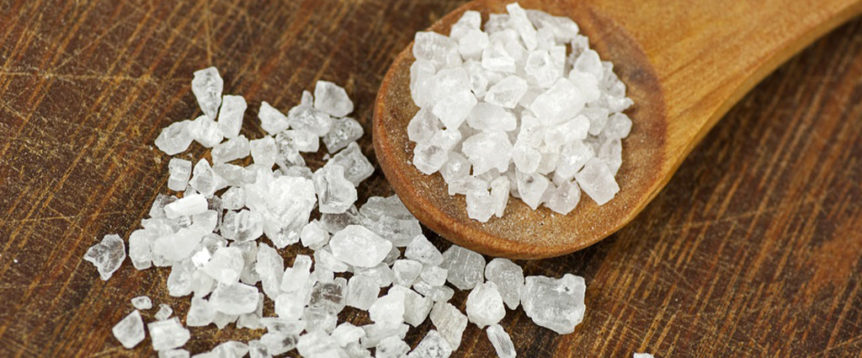› What is it?
Sodium chloride, or table salt, is the most common dietary form of sodium. Salt is important for balancing fluid levels in the body, transmitting nerve signals, contracting muscles and maintaining blood pressure.
› Health benefits
Hyponatremia
The nausea, headache, confusion and fatigue caused by hyponatremia, or too little sodium in the blood, can be resolved by giving an IV solution of sodium chloride. This condition sometimes occurs in people with kidney disease or athletes who have been sweating a lot.
Cystic fibrosis
Inhaling a solution of sodium chloride helps to thin mucus in the nasal and throat passages, making it easier to breathe and improving quality of life for patients with cystic fibrosis.
Stress
Research in rats shows that elevated levels of sodium blunt the response to stress by inhibiting the hormones that would normally be released in response to a stressful situation.
› How much do I need?
The adequate intake of sodium for adults is 1.5 grams per day, and the recommended maximum intake is 2.3 grams. These levels are lower for children. Too much sodium can increase blood pressure to dangerous levels and can also worsen heart and kidney disease. There is also some evidence that high-sodium diets contribute to obesity.
› In food
Salt is used for preserving and seasoning foods, as well as enhancing their natural color. It is found naturally in some foods and is added to many others, particularly processed and convenience foods.
› Dietary supplements
Most people get more than enough sodium chloride in their diets, but a deficiency is possible for those who drink excessive amounts of water, have diarrhea, or take part in endurance sports. These people might benefit from added salt in the diet or a salt pill. Consult a doctor before deciding to add more salt to your diet. There are also several medical uses for a sodium chloride solution (saline). These include IV drips to treat electrolyte imbalances or dehydration, nasal drops to clear congestion, saline washes to clean wounds, and eye drops to treat redness or dryness.
Source: Source: WebMD, Healthline, Science Daily
Please consult your health care provider before making changes to your vitamin/supplement regimen.

